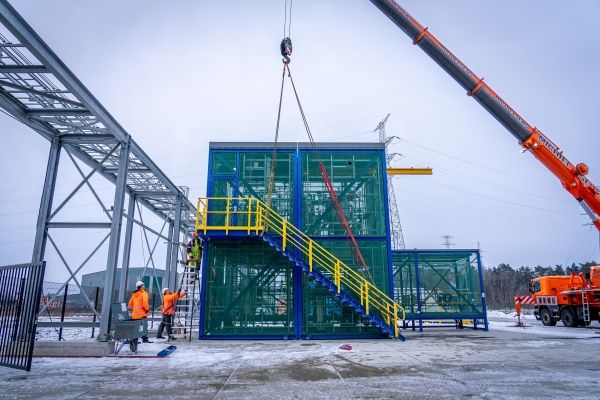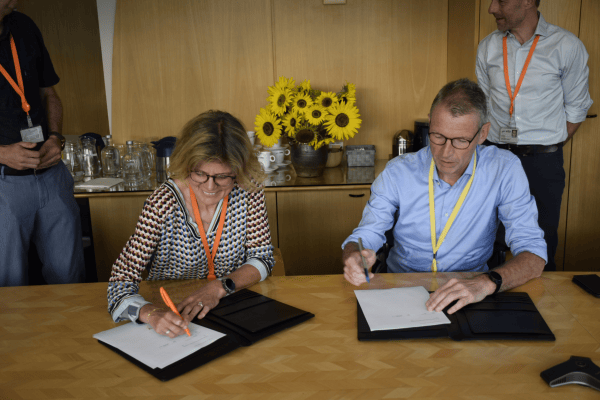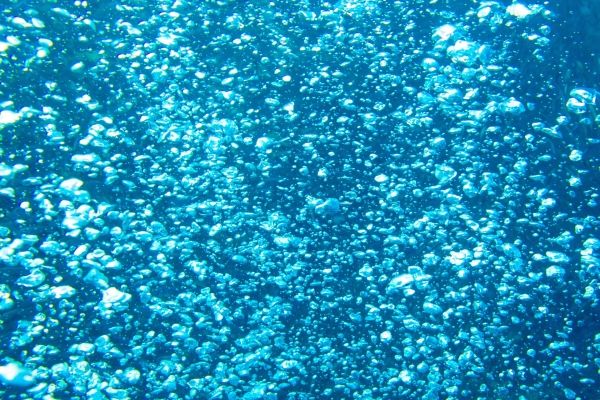1 in 4 Flemish people work in a water-intensive sector
No water? Then also no work and no prosperity. New research shows that the 15 most water-intensive sectors account for one in four jobs in Flanders and more than a third of gross value added. So the Flemish economy is heavily dependent on enough water of the right quality. Yet water stress remains worryingly high, despite less and more efficient water consumption.
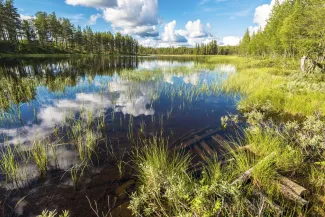
Water essential for work and prosperity in Flanders
Adequate water supply is increasingly determining the pace of the economy. Exactly how big a role does water play in wealth creation in Flanders? Which sectors get into tight spots when there is too little water, or no water of the right quality? That is what a new study on the socio-economic importance of water in Flanders investigated. The figures reflect the situation in 2020.
Flemish Minister for Economy and Innovation Jo Brouns stresses that our economy can have a huge impact on water consumption in Flanders, and thus also has huge potential to tackle the drought issue. "It is for this reason that over the past two years we have also invested 10 million euros through the Blue Deal in water-saving measures at companies. This summer we also launched water scans, which companies can now call on to give them more insight into their water use and thus make them more aware of sustainable water management in their processes. This way, we can achieve even more water savings, which is good for the climate but also for the costs of our Flemish companies."
More than 1 in 4 works in a water-intensive sector
The 15 sectors that use the most water are directly responsible for 27.3% of total employment in Flanders. The share of those water-intensive sectors in the gross added value of the Flemish economy is 33.7%, accounting for 80 billion euros.
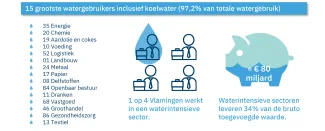
The water-intensive sectors are largely situated within the manufacturing industry, which indirectly creates many more jobs. A guaranteed water supply at a competitive price is therefore crucial, also to attract international investments.
The main water consumers (not including cooling water) are the chemical (21.9%), logistics (11.8%), agriculture (10.4%), food (7.8%) and metal (7.6%) sectors. Together, these 5 sectors account for 60% of water consumption within the Flemish economy.

Energy, chemical and shipping sectors dependent on surface water
In turn, the energy (62.3%) and chemical (24.8%) sectors are the most dependent on cooling water. Together with the coke industry and the food sector, they used 1.9 billion m³ (99.6%) for cooling processes in 2020. Heat and drought have a major impact on these sectors. This is because when surface water temperatures rise, more water is needed to cool equally well. That water is often hardly available, which severely disrupts or even shuts down cooling plants.
Freshening ships also requires a significant amount of water. In case of insufficient water supply, governments are therefore sometimes forced to ban water pumping, as happened last summer.
So without enough fresh surface water, both shipping and cooling water-intensive sectors are in trouble.
Flemish Minister for the Environment Zuhal Demir: "This study once again shows the importance of water for Flanders. Flemish industry does take a lot of steps itself to deal with the excesses of climate change. It shows that we are on the right track with the Blue Deal, which last summer prevented a spraying and capturing ban for companies. We will persevere to turn that tanker around further. This is the only way we can ensure our water supply in a future where Flanders will have to further face the effects of climate change."
Flemish economy uses water more efficiently
In 2020, the Flemish economy used some 2.5 billion m3 of water, more than one billion cubic metres less than in 2010. The sharp decrease is mainly due to less cooling water use, which significantly increases water efficiency. Water efficiency indicates the economic added value created per cubic metre (EUR/m3). This increased from EUR 54 per m3 in 2010 to EUR 99 per m3 in 2020.

Total water cost and water sensitivity of sectors
The total water cost for supply and treatment for Flemish companies was 934 million euros in 2020, an 18% increase compared to 2010.
The chemical, food, energy and coke sectors pay the largest share of the water bill, together accounting for 381 million euros per year or 41% of the total annual combined water bill. The sectors that feel rising water prices most strongly are mineral extraction, coke and metals. Here, a high water cost has the biggest impact on the margin of operating income.
Water stress needs to drop further
In Belgium, water stress fell from 73.13% to 54.07% between 2010 and 2019. Water stress is the ratio between the amount of freshwater used and the amount available. A region shows water stress when that figure exceeds 25 %. Despite more efficient water use, water stress remains worryingly high in Belgium. In Flanders, the Blue Deal is making great efforts to continue the downward trend, but the high figure proves that more decisiveness is needed to make the water system robust.
Flanders' ambition with the Climate Adaptation Plan is to reuse as much water as possible by 2040, so that industry has to rely on drinking and groundwater as a minimum. The main consumers of groundwater are agriculture, the food sector and the beverage industry, accounting for 70% of total groundwater consumption. The main consumers of drinking water are the chemical, coke and refinery products and food and beverage industries. Together, they account for 47% of drinking water consumption within the Flemish economy.

Dirk Halet, Strategic Coordinator Vlakwa: "It was only at the end of November that the Drought Committee was able to lower the risk level to green. Due to little rain and high water consumption, groundwater is replenishing only slowly. This has long been out of the picture, but is now increasingly setting the pace. With this study, we want to understand those vulnerabilities to set priorities."
About the study
The study on the socio-economic importance of water in Flanders is an initiative of Vlakwa, Flanders Knowledge Centre Water. The analyses were carried out by Flemish research organisation VITO, based on data sources from Belgian and Flemish governments.
Studies were previously conducted in 2013 and 2018 to map the socio-economic importance of water in Flanders. The study has now been updated with a higher level of detail, integrating previous results to identify trends.
The results of the study are available via an interactive tool with filters for sectors and provinces.
Download the full infographic here (Dutch only).


